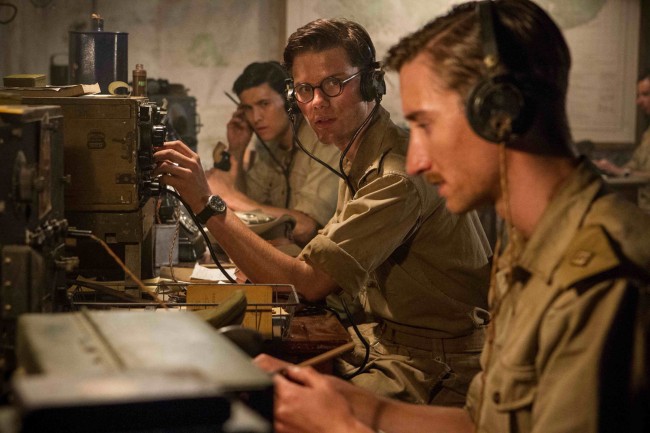The Railway Man
A Train Called War

Starring: Colin Firth, Nicole Kidman
Review written by Tom Bevis
“I have a small problem,” Eric Lomax (Colin Firth) tells his veteran cohorts in the crisp shade of a Veteran’s Club, “which I suspect this small gathering might find interesting.” Thus are the first spoken words of The Railway Man and many of its trailers. But the film has misled you. The Railway Man has led you to believe it will be a war-themed romance, something perhaps not unlike Atonement. Or, perhaps it asked you to believe it was a special brand of WWII revenge thriller, perhaps something like a toned down Inglorious Basterds.
This kind of deception, while to a conscientious movie-goer ever concerned about the rapidly inflating ticket price at the cinema will seem like a cruel deception, in a world of marketing, is actually quite essential. The studio would have essentially been splitting their potential audience base into a miniscule niche if the trailers and adverts portrayed this film for what it is: a solid, stoic meditation on the effects of war-time torture, revenge, and redemption.
Based on the book of the same name by the real-world Eric Lomax, the film follows Firth’s Lomax as he falls in love, recounts his time spent in World War II, serving as a radio operator for the British army before being captured and forced to help build the Burma Railway after Singapore fell to the Japanese forces. As his wife Patti (Nicole Kidman) attempt to help Lomax come to terms with his psychological trauma, he creates a plan to return to the camp in which he was enslaved to seek vengeance on the Japanese officer her saw responsible for his treatment.
Everything in this film, from the music to the cinematography to the very credit sequence, is a testament of artistic precision, resulting in a masterfully crafted film. This is one of the rare opportunities in film where each and every element knows its place and works in support of all the elements surrounding to create a film that is just as gorgeous visually as it is intelligent in the narrative. If an issue were to be raised with the quality of the film, it would definitely have to be in the script, but not in direction or production.
The script, early on, struggles to find its legs as it decides what kind of movie it wants to be. Every vapor of the romance it initially chooses to follow is washed away quickly, though, as the film realizes its true potential: the atrocity of war and the love of trains. Lomax, a life-long railroad enthusiast, is ironically captured and forced to help build a railway many considered would be impossible to finish. This is mirrored in his Japanese counterpart and tormentor, Takashi Nagase (Hiroyuki Sanada), who, after realizing how dire his participation in the events of the war truly were, resolves to run the railroad and wartime museum at the site of the very camp he once operated.
This juxtaposition comes together beautifully, and creates a cohesive and compatible story of human interaction, a keen type of commentary on the human condition, portrayed by Firth and Sanada as well as their younger counterparts, Jeremy Irvine and Tanroh Ishida. In fact, the interactions from either pair are laced with more authenticity and chemistry than any second Firth and Kidman share on screen. Nicole Kidman, while playing a more toned down, diluted version of her usual over-acting mannerisms, serves merely to push the story where it needs to go, narratively speaking, and provides a framework for the film’s cunning flashback sequences.
While it is difficult to say whether Firth is better at his game in this film than his previous critically acclaimed drama, The King’s Speech, this performance definitely seems more interested. Trading in the babbling uncertainty of Firth’s King George VI for Lomax’s trembling uncertainty in the face of revenge, the story told here seems more human and universal, and perhaps more accessible for those of us in the states that think first of Disney movie princes before figurehead rulers when considering royalty. While Firth isn’t doing more in this film, the film is doing more around him than The King’s Speech was even capable of. On that very merit, this film is absolutely worth the price of that ticket, deceptive marketing be damned, and perhaps worth a revisit once the awards season rolls around again.
